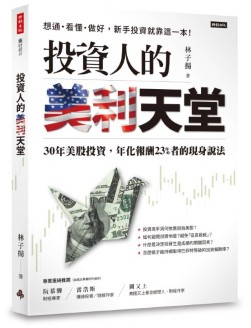Learning to avoid failure and mistake
In Berkshire’s shareholder letter in 1989, Buffett said: “A further related lesson: Easy does it. After 25 years of buying and supervising a great variety of businesses, Charlie and I have not learned how to solve difficult business problems. What we have learned is to avoid them. To the extent we have been successful, it is because we concentrated on identifying one-foot
hurdles that we could step over rather than because we acquired any ability to clear seven-footers.”
In Buffett’s 1993 shareholder letter, he explained:
Charlie and I decided long ago that in an investment lifetime it’s just too hard to make hundreds of smart decisions. That judgment became ever more compelling as Berkshire’s capital mushroomed and the universe of investments that could significantly affect our results shrank dramatically. Therefore, we adopted a strategy that required our being smart – and not too smart at that – only a very few times. Indeed, we’ll now settle for one good idea a year. (Charlie says it’s my turn.)
Munger’s philosophy of life
“In my life, I try to avoid things that are stupid and evil and make me look bad.”
Munger noticed patterns of irrational behavior that led to repeated mistakes, so he set out to finds ways to understand psychology in order to avoid the mistakes himself:
I was greatly helped in my quest by two turns of mind. First, I had long looked for insight by inversion in the intense manner counseled by the great algebraist, Jacobi: “Invert, always invert.” I sought good judgment mostly by collecting instances of bad judgment, then pondering ways to avoid such outcomes.
Second, I became so avid a collector of instances of bad judgment that I paid no attention to boundaries between professional territories. After all, why should I search for some tiny, unimportant, hard-to-find new stupidity in my own field when some large, important, easy-to-find stupidity was just over the fence in the other fellow’s professional territory? Besides, I could already see that real-world problems didn’t neatly lie within territorial boundaries. They jumped right across.
The speech Munger delivered at Harvard-Westlake College in 1986 can now be selected as “How to Guarantee a Life of Misery“. Key points from this famous speech are as follows:
- “I just want to know where I’m going to die so I can never go there.”
- “Thinking in the opposite direction, always thinking in the opposite direction.”
Equally important as investing in your circle of competence is avoiding what lies outside of it. Munger warned, “If you are playing games where other people have the aptitudes, and you don’t, you’re going to lose.”
Draw on your personal interests and experiences. Munger explained, “You have to figure out where you’ve got an edge.” Anchoring investments to your competence circle allows you to capitalize on information asymmetries.
Avoid areas beyond your capabilities
“With regard to investment, we have three options: yes, no, too difficult. Unless we are particularly optimistic about a project, we classify it as a “too difficult” option. All you need to do is look for a special area of competence and focus on it.”
Munger distinguished investments into: those that can be invested, those that cannot be invested, and those that are too difficult to understand. He often says that he and Buffett will decisively classify potential investment projects as “too difficult.” If they can’t understand it, they give up.
Petr Lynch admitted, “I don’t invest in technology. Too much risk, too little brains.” So, stay disciplined in avoiding the areas you don’t comprehend, no matter how promising they appear in the moment.
John Templeton emphasized: “The only way to avoid mistakes is not to invest—which is the biggest mistake of all. So forgive yourself for your errors. Don’t become discouraged, and certainly don’t try to recoup your losses by taking bigger risks. Instead, turn each mistake into a learning experience.”
Mistake of omission
What Buffett once said–the missed opportunities I said are related to the scope of my ability, that is, things that I can understand, fully understand, but do not spend the least amount of time. I just stood still, this is the real mistake. He himself admitted: Even though we knew it was cheap, we didn’t invest early and missed the opportunity to get paid.
Charlie Munger further said in his usual forthright speech, “There are two kinds of mistakes: first, do nothing (see the opportunity but put it on the shelf), Buffett calls this “finger-sucking mistake”; second, we only buy the amount of potion bottles when we are supposed to buy things in piles.”
Then just avoid making the mistakes you should have made but didn’t, so you don’t make things you’ll regret later. Because this way you can ensure that you don’t miss out on opportunities, or things that are within your capabilities, that are things that you can understand, fully understand, but haven’t put in any effort to do.
Closing words
If we can avoid serious thinking errors, we greatly increase our chances of success. Aristotle said: “The goal of a wise man is not to achieve happiness, but to avoid misfortune.”

Related articles
- “Learning to avoid failure“
- “Stay away from people problematic personality“
- “The importance of circle of competence“
- “Investment mistakes Buffett made in his first 25 years“
- “Invest success depends on less chance of making mistakes“
- “Mistakes of omission and mistakes of commission“
Disclaimer
- The content of this site is the author’s personal opinions and is for reference only. I am not responsible for the correctness, opinions, and immediacy of the content and information of the article. Readers must make their own judgments.
- I shall not be liable for any damages or other legal liabilities for the direct or indirect losses caused by the readers’ direct or indirect reliance on and reference to the information on this site, or all the responsibilities arising therefrom, as a result of any investment behavior.
